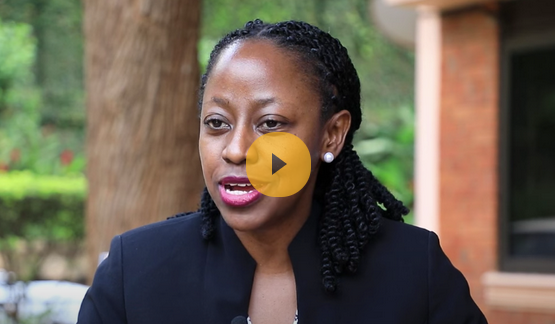People and Culture
-
Women and girls equity, diversity and inclusion:
We aim to create a team that reflects the diversity of Ugandan society in terms of age, women and girls, and disability. CARE’s aspiration is to have at least 60% female staff, and at least 50% senior leadership positions held by women. CARE also promotes workforce integration of younger persons, persons with disabilities, and members of ethnic minority groups at all levels.
-
Active talent management:
CARE maintains an internal talent pool that can be deployed at any time to fill gaps identified by manpower planning. Within CARE, talent management is a key tool to promote and groom female leadership and male champions of women and girls equality and women’s and girls’ rights.
-
Investing into staff capacities:
CARE ensures that all staff have a sound understanding of CARE’s programming approaches and principles, in addition to their own technical expertise and skills. For instance, CARE periodically conducts training on women and girls equity, diversity, and inclusion for all staff.

CARE's Women Shine Project is enhancing women's skills to accelerate their career growth.
-
Safeguarding & promoting CARE’s core values:
We live our core values15 within and beyond the organization. CARE has strong safeguarding systems that ensure that all staff are aware of their responsibilities, and helps others, including CARE’s partners, to align PSHEA approaches to best practice.
Systems and Structure
-
Institutionalising SDG 5 “ Women & Girls Equality”:
CARE’s technologies, policies and procedures to promote women and girls equality and empowerment of all women and girls at all levels, within CARE and external stakeholders, including vendors.
-
Ensuring Best Value for Money (BVfM):
Operational excellence is achieved through being deliberate in what we do, where we do it, how we do it, and whom we do it with. To deliver BVfM, CARE ensures that policies and procedures governing the project cycle, data reliability and reporting are aligned across the organization, and invests into robust quality assurance and risk management systems.
-
Promoting cost-efficiency:
CARE is committed to reducing country program overhead to single digit rates. CARE maintains a lean staff structure that is aligned to the program areas and program support functions for internal service provision. Automation of processes and optimal use of the available CARE global systems further contribute to enhancing cost-efficiency of our operations.
-
Embracing ICT:
CARE explores and adopts new ICT developments or innovations to support the effective delivery of programs and to enhance the efficiency of program support processes, always mindful of and addressing the digital women and girls gap that exists in Uganda to prevent exclusion of women and girls.
Strategy and Governance
-
Local ownership and sustainability:
Believing firmly in the benefits of local ownership, CARE invests into fostering partnerships with a great variety of Ugandan stakeholders. CARE also aims at filling its leadership ranks and staff positions with local talent, while tapping into CARE’s global eco-system for specific technical support.
-
Transformational leadership:
CARE’s leadership puts our vision for women and girls equality, diversity and inclusion at the center. The leadership style provides encouragement and mentorship to all, irrespective of their women and girls, age, or other personal characteristics, inspires them to achieve their goals and think of the big picture. It understands organizational needs and welcomes creative and innovative solutions.
-
Presence across Uganda’s geography:
CARE aims at having presence across Uganda’s East, North, and South-West, with geographic prioritization based on the analysis of women and girls poverty and inequality, presence of refugees, and local disaster and the combined impact of these factors on women and girls.
-
Rigorous implementation of the Business Plan:
CARE delivers against the objectives and priorities defined in the current Business Plan through a set of corresponding strategies for programs, fundraising, partnerships, diversity inclusion and accessibility, private sector engagement, and digitalization.
Compliance and Risk Management
-
Transparency and zero tolerance:
CARE complies with the highest levels of transparency according to national and international standards and laws. For operations in Uganda, CARE utilizes strong financial management systems and software used across CARE globally, continuously builds staff capacities and awareness around compliance and practices zero tolerance to all forms of resource misuse.
-
Risk monitoring, mitigation, and response:
As of late 2020, the context in Uganda was fairly stable, despite different crises impacting the country’s socio-economic development, and the health and wellbeing of women, men, girls, and boys.
CARE’s risk assessment indicated that new crises may be triggered at any time by regional, domestic, environmental or epidemic factors. CARE therefore conducts regular context analyses that help guide the organization’s operations and prepare for adapting CARE’s programs and ways of working to changes in the context.

